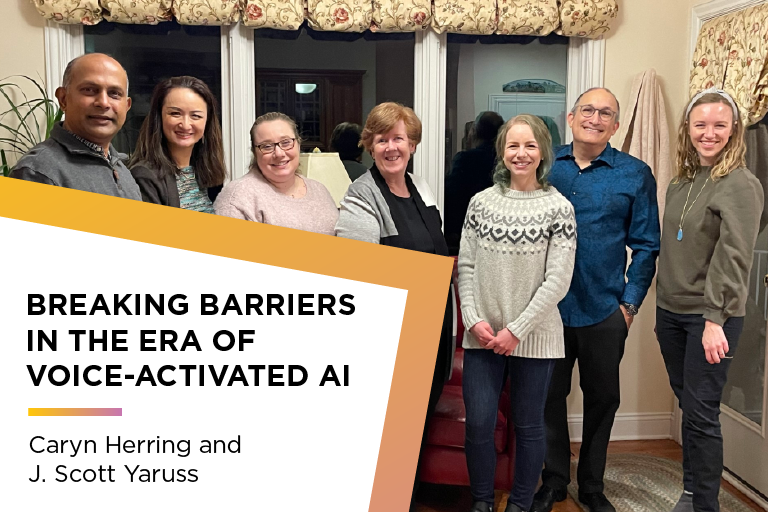In 2024, Siri, Google and Alexa are members of the family.
Voice-activated artificial intelligence (AI) is a staple of modern life. With its immediate functionality, AI is often taken for granted by millions whose requests can be quickly fulfilled with a few short commands.
But to those for whom speech is a constant struggle, AI can be a locked door. Now, two ComArtSci researchers are trying to make a key.
Caryn Herring and J. Scott Yaruss work in the Department of Communicative Sciences and Disorders. They’re part of a National Science Foundation (NSF) grant-funded team that’s developing an app to make voice-activation AI accessible for people who stutter. Herring, who herself speaks with a stutter, is a speech-language pathologist and doctoral candidate. Yaruss is the director of the Spartan Stuttering Laboratory and CSD professor.
The millions who stutter “are getting left behind as the rest of us find this great convenience of being able to talk to our cars and our houses ... and they can’t,” said Yaruss. “They already experience gaps, and these gaps are going to be exacerbated as the technology becomes ever more ubiquitous.”
Because voice AI systems don’t recognize stuttering, the team had to gather a large sample of audio files from people who stutter, as well as the correct transcriptions. The prototype app, called HeardAI, recognizes stuttered speech, and is expected to one day interface with existing voice systems such as Siri and Alexa. It’s still under development, and researchers are ensuring the project is user-driven.
“That’s the really cool part,” said Herring. “Individuals who stutter and the larger stuttering community have a say. They have a role in what we are going to develop. We’ve gotten input from people who stutter from the start.”
HeardAI may prove to be a game changer for people who find themselves facing everyday situations like automated phone trees. “Those systems don’t understand me or give me enough time to say what I want to say,” Herring said. She noted one experience using Interview Warmup, a free online Google app that poses practice interview questions. When Herring replied that she can “assess situations,” the app recorded the word “assassin.”
“If this is what goes to an HR person, then Caryn isn’t getting the job,” Yaruss said.
The research team has high hopes for the app’s success. Herring says the project is an encouraging step forward for the stuttering community.
“I think people are very excited,” she said. “They can see the real-life impact that HeardAI can have on their life.”
Read more in The Engaged Scholar Newsletter
